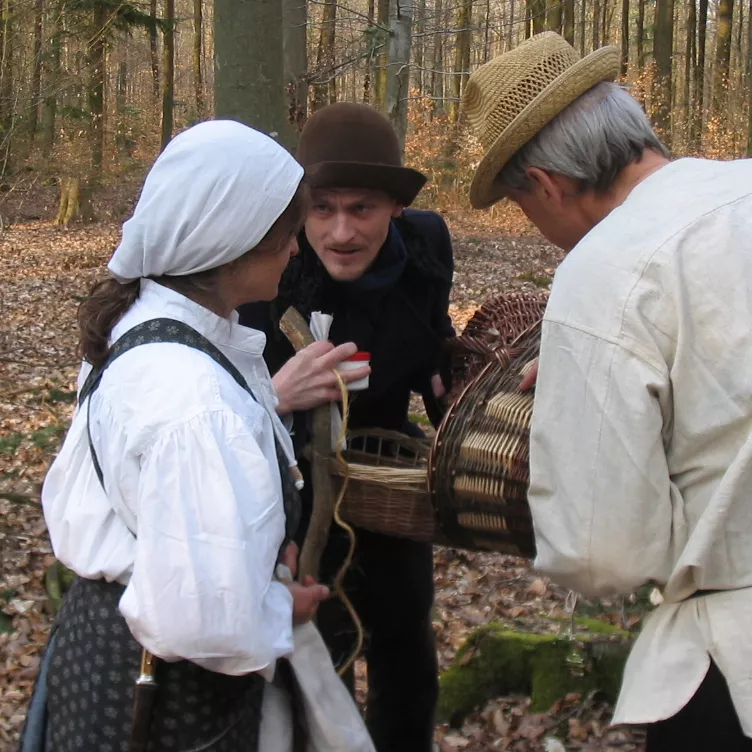DELPHI draws on European values and identity through cultural heritage

Original language: German
For many of its citizens, Europe is still an abstract construct that stands mostly for bureaucracy and the curtailment of national interests. When it comes to regional or local specificities - such as cultural or natural heritage sites - people rarely connect to European ideas or values. This is where DELPHI comes into play.
Through its Erasmus + program, the European Commission has been helping to spread European values. The abbreviation stands for "Development of Continuing Professional Development for Heritage Interpretation to facilitate Lifelong Learning for Social Inclusion and European Cohesion". DELPHI is a new Erasmus + project, launched in November 2018, that will train cultural heritage interpreters to draw on Europe’s values and identity at a local and regional level. The target group includes cultural heritage interpreters, but Europe's diverse communities.
Interpretation has a tangible phenomenon as its starting point; its aim is to convey how a tangible phenomenon is meaningful to a visitor’s life and experience. The personal contact between the interpreter and visitor and the encounter of the visitor with the heritage plays a central role.

Heritage interpreters - often volunteers - should be supported so they can draw on local cultural heritage, whether it be architecture, food or customs, but also provide insight into the European dimension together with their visitors.
Thus, DELPHI will develop a qualification framework in line with EQF, using blended learning, providing training materials and a validation system for its learning outcomes. A pilot course will be carried out as part of the project.
This focus allows DELPHI to explore new approaches in communicating core European values. The European Year of Cultural Heritage, announced by the European Commission in 2018, demonstrates how important the EC sees the role of heritage in conveying values.
Projects approaching European values through Heritage Interpretation are few and far between. The project training will target interpreters working with hard-to-reach groups, people who are either uninterested in cultural heritage or are skeptical about Europe. In this context, the project will explore the connection between heritage education and socio-cultural integration in an open European society.
Approaching heritage interpretation in partnership with the adult education sector is also a new method for both those working in the heritage field and adult education providers.
By developing continuing education materials, the DELPHI project contributes additional resources to the field of continuing vocational training in the field of heritage interpretation.
The seven project participants bring a wealth of experience in the field of heritage education and related sectors:
- The project is coordinated by the German Institute for Adult Education in Bonn (D), which contributes its expertise in the field of professionalisation in adult education.
-
Landcommanderij Alden Biesen near Liège (B) recently developed the BADGES project which validaties visitors' non-formal learning at cultural heritage sites, developing learning paths as an app. Their previous experience also includes the development of a competence profile for heritage interpreters as part of the InHerit project.
-
The Greek project partner The Mediterranean Center of Environment (MCE) developed a certificate course for heritage interpreters in the HeriQ project.
-
The Blended Learning Institutions Cooperative (Blinc) has years of experience in creating learning platforms that enable learning, validation and documentation.
-
The Associazione Culturale Imago Mundi Onlus (I) which started the "Monumenti Aperti" movement in Sardinia and has been successfully running this project for many years, brings their extensive experience of heritage sites and the training of interpreters to the project.
-
The 'Heritage Interpretation' working group at the Albert-Ludwigs-University Freiburg (D) worked together with experts in the project HIMIS to train teachers and learners to develop values based on cultural heritage.
- The Centre for Applied Archeology (CAA) at University College London (UK) was the first institution to develop modules for heritage interpreters at university level.
Patrick Lehnes from the Albert-Ludwigs-Universität Freiburg explains the connections between local cultural and natural heritage and the European idea in this EPALE blog post: “The European significance of local heritage“
Links to previous projects:
- InHerit: Professional development in heritage interpretation
- HISA: Educational material for heritage interpretation for senior audiences
- HeriQ: 5-day certificate course for heritage interpreters
- HIMIS: Erasmus+ project for heritage interpretation for migrant inclusion in schools
- BADGES: Validation of non-formal learning in cultural and heritage contexts
(Image: Thorsten Ludwig, CC BY SA 2.0)
Angelika Gundermann works in the department of knowledge transfer of the German Institute for Adult Education, Leibniz Centre for Lifelong Learning. She is an editor for the information and networking platform for continuing education professionals wb-web.de and is involved with the projects EULE and DELPHI.




